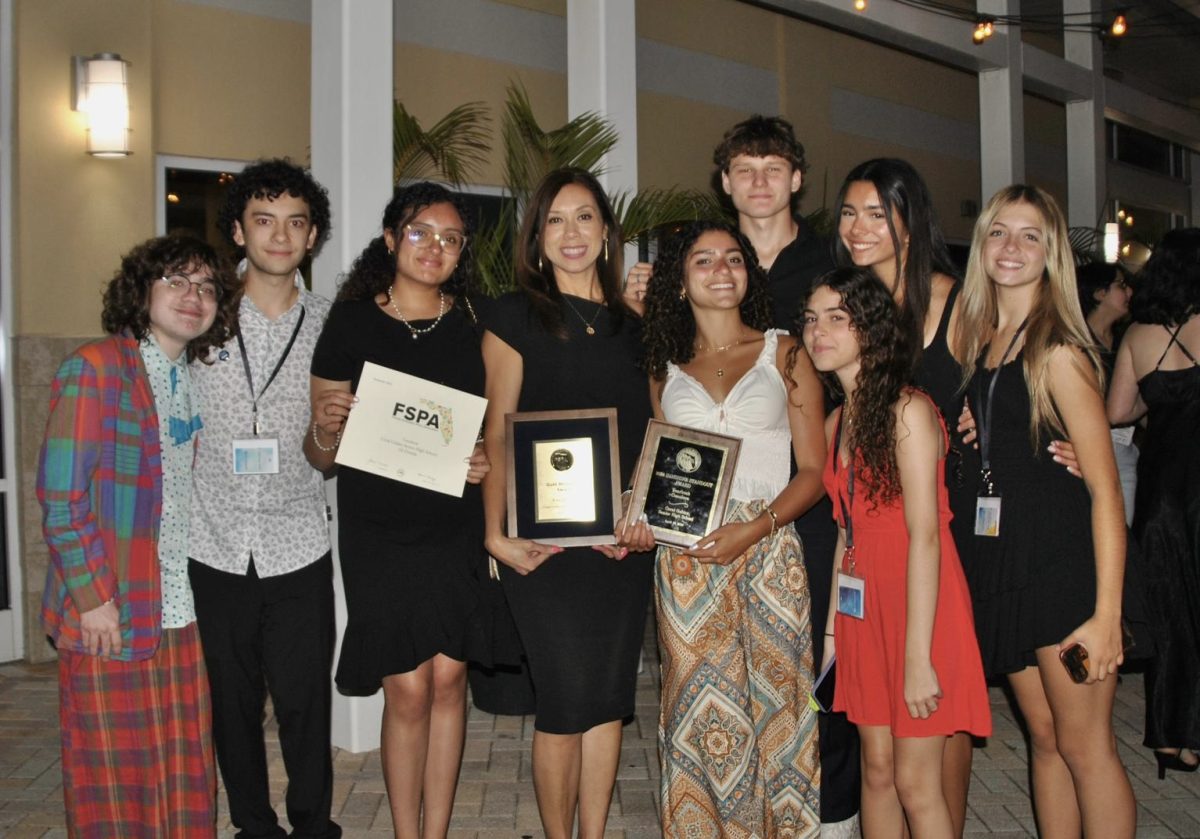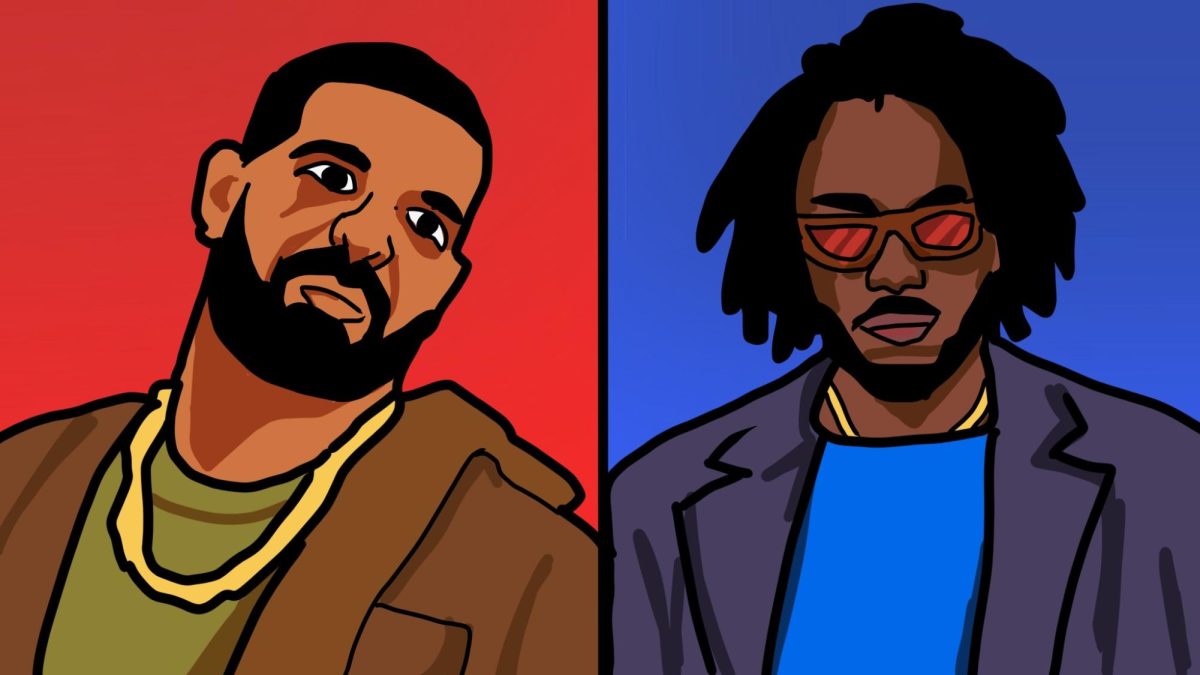Why Do We Celebrate This Holiday?
The Easter bunny symbolizes fertility in the spring time, and that’s why its eggs are found everywhere on the ground.
Apr 21, 2014
Every year, we love to celebrate a wide variety of holidays. However, many people don’t know the real reason behind their celebration. Do we truly know where they came from? Do we know why we celebrate them? If you don’t know why, here are some common holidays you might want to learn about.
- Easter: This holiday isn’t just about collecting eggs in your backyard or eating chocolate bunnies; there’s a much deeper meaning behind this Easter Sunday. Named after Easter, the Anglo-Saxon goddess of spring, this day is dedicated to Jesus Christ’s resurrection on April 6th, 33 A.D. The Easter Bunny, or the Easter Hare, is commonly associated with colored eggs, which symbolize fertility. Children often search for hidden eggs on this day because early Romans believed that “all life comes from an egg.” Also, Christians say that eggs are “the seed of life” and symbolize the resurrection.
“Since Easter has been celebrated for over 2,000 years, I know that it is a significant tradition. Obviously if it has been around this long, then it’s meaning was always important,” freshman Chelsea Marino said.
- Halloween: Trick or treat, give me something good to eat! Or should I say, “I’m not an evil ghost, but may I have some candy?” It all started around 2,000 years ago, when October 31st was considered the last day of the Celtic calendar. Originally, this holiday honored the dead and was known as, “All Hallows Eve.” The Celts thought that the good and evil ghosts would walk around their villages. They were not scared of the good spirits because they could have been one of their beloved ones roaming around to check up on them. The Celts would leave goodies and treats for the evil spirits to go away, leading to the custom of handing out candy, or trick-or-treating, on Halloween. Last but not least, other than gifting them, the villagers would dress up to walk around the streets disguised so that the ghosts would think they were not living. What are you going to do next Halloween?
“It amazes me how even little kids and adults celebrate Halloween without knowing the story behind the holiday. There should be more news about the origin to make sure people are aware of what they are celebrating,” junior Zak Wagan said.
- Thanksgiving: Celebrated on the fourth Thursday of November each year, this holiday dates back to the 1700s. Thanksgiving was established after the pilgrims traveled on the Mayflower across the Atlantic Ocean and arrived in Plymouth, Massachusetts in December 11th, 1620. The following summer, the pilgrims experienced a drought and needed help to find a way to plant crops as their food supply. Eventually, the pilgrims received agricultural help from the Indians in that same area and, in exchange, the pilgrims spread their religion to the Indians. In the autumn of the same year, the first Thanksgiving feast took place.
- Hanukkah: Also known as “dedication” in Hebrew, this eight-day Jewish celebration lasts from December 16th to the 24th. This holiday originated when the Land of Israel was under the control of King Antiochus IV, who took over and commanded the Jews to believe in Greek gods. Over the following years, it became a struggle to force the Jews to change their religion; however, in 168 B.C, Antiochus IV sent his solders on a killing spree in Jerusalem and violated the city’s Second Holy Temple. Later on, Judah Maccabee assisted the Jews in getting the Syrians out of Jerusalem and repaired the Second Temple. The traditional menorah was first lit when the Jewish army found enough oil to last one night, but it miraculously lasted eight days, which is why most menorahs have eight candles. Oh, sweet Hanukkah.
- Christmas: Do you have your jingle bells ringing all the way? Well, regarding the Christian religion, Christmas takes place on December 25th because of Jesus Christ’s birth in year 1 B.C. Early Roman pagans would celebrate what was then called Saturnalia during the week of December 17-25. The festival would begin when the authorities would choose an enemy of the Romans to represent as the “Lord of Misrule.” The victim would be wallowed in food and given desirable physical pleasures. Then, on Christmas day, they were murdered in the Roman authorities’ attempt to remove “the forces of darkness.” Now, when it comes to the custom of having a tree lighting up in your living room, we remember how the pagans worshiped trees and would take them to their homes to decorate them. In pre-Christian Rome, the emperors would receive gifts from their citizens., which is the reason why the celebration cannot go without gifts. For Christians, the custom was changed and the gifts are now given for Saint Nicholas, also known as our big old guy in a red suit, Santa Claus.
To sum up, next time you see an upcoming holiday in your calendar, take your time and do some research on it. You never know what you’re truly honoring until you truly read about it. Who ever knew the reason we trick or treat or dress up on Hallows Eve? Who knew the reason behind the gift giving on Christmas was because of Saint Nicholas? So, simply take the time to find out what exactly these holidays signify and why modern day people make such an effort to celebrate them.














